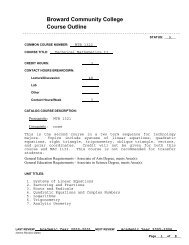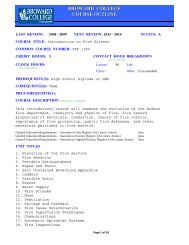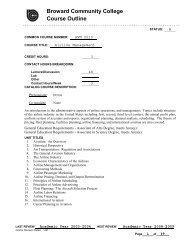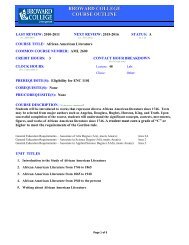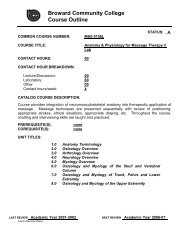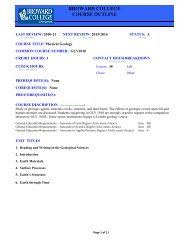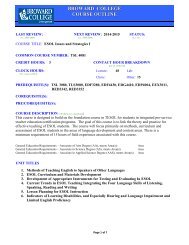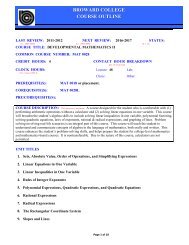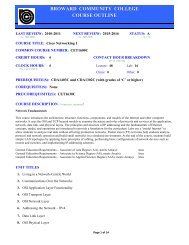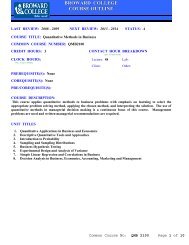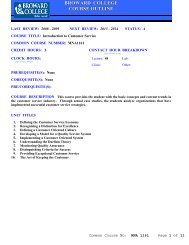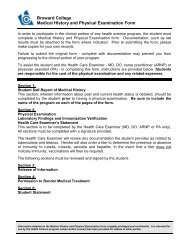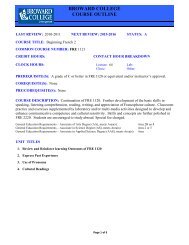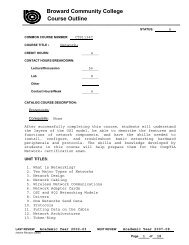CIS2321C - Broward College
CIS2321C - Broward College
CIS2321C - Broward College
Create successful ePaper yourself
Turn your PDF publications into a flip-book with our unique Google optimized e-Paper software.
BROWARD COLLEGECOURSE OUTLINEEVALUATION:Please provide a brief description (250 characters maximum) that details how students will be evaluated on the course outcomes.Evaluation instruments will include written and/or skills-based examination and individual in-class and/or take-homeassignments. Evaluation methods may also include group in-class and/or take-home assignments.**Required Competencies1) Read with critical comprehension.The student will be introduced to the basic texts, concepts, vocabulary, and methods necessary for developingan understanding of the discipline and meeting the required benchmarks as stated in the course outline.2) Write clearly and coherently.The student will demonstrate an understanding and mastery of subject matter in a variety of ways, includingwriting. Writing activities may include both graded and ungraded essays, short answer quizzes, summaries,reactions, journals, and various other reports.3) Demonstrate and apply literacy across all the disciplines (indicate which ones apply).a) Information literacy means understanding how to locate needed information, using the appropriatetechnology for the task, managing and evaluating the extracted information and using it effectively andethically.b) Technology literacy is the ability to responsibly and effectively use appropriate technology to access,manage, integrate, or create information, and/or use technology to accomplish a given task.c) Workplace literacy is having the appropriate knowledge and skills to communicate and work withothers effectively and perform job duties, whether it is through the use of computers and/or othertechnology.d) Cultural literacy is recognizing, understanding, and appreciating the similarities and differencesbetween one’s own culture and the cultures of others through a study of the arts, customs, beliefs,values, and history that define a culture.e) Quantitative literacy is having the ability to formulate, solve and interpret mathematical/statisticaloperations and graphical/tabular representations to make informed decisions.f) Scientific literacy means understanding the methodology and application of the scientific process, thephysical and biological worlds, and recognizing that scientific knowledge is continuously updated orrevised as new information is discovered.4. Apply problem-solving skills or methods to make informed decisions in a variety of contexts.The student will use acquired skills or methods to recognize, analyze, adapt, and apply criticalthinking to solve problems and make informed decisions.Page 2 of 14



